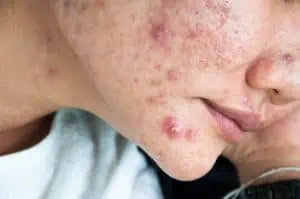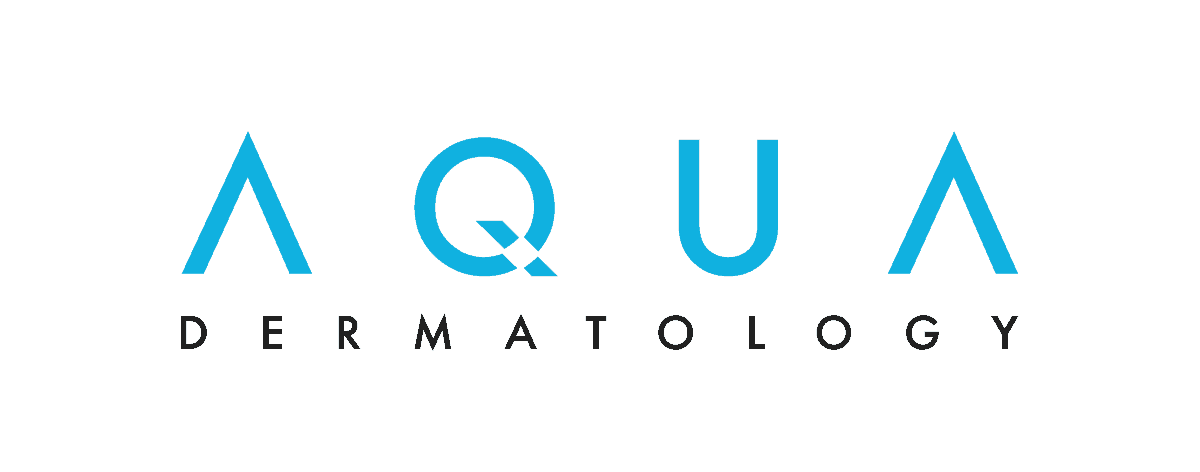
Medically reviewed by: John Minni, DO
Clearing severe acne can be a challenge. When other acne treatments don’t improve deep cysts and nodules, dermatologists often recommend isotretinoin, better known as Accutane. A potent medication, it has been in use for decades. Yet the prospect of taking Accutane for acne frequently raises questions, the main one being, “Is Accutane safe?”
Even though Accutane can lead to amazing complexion transformations even in the worst cases of acne, Accutane side effects, and myths about Accutane side effects, have given the drug a bad reputation. As a result, some people with severe acne hesitate to try it, despite its potential benefits.
“In many cases, Accutane is the only treatment that will clear severe cystic acne and reduce the risk of permanent scars that can result,” said John Minni, DO, a board-certified dermatologist at Water’s Edge Dermatology. “This medication works incredibly well.”
Below are answers to the most common questions dermatologists get about Accutane from acne patients or their parents.
What is Accutane?
Accutane was a brand name of isotretinoin, an oral medication used to treat acne and other skin conditions such as rosacea. The brand was discontinued, but isotretinoin is still commonly referred to as Accutane. The medication is usually reserved for people with severe acne — deep, painful cysts and hard lumps called nodules — that hasn’t improved with other treatments. Dermatologists may also prescribe it for cases of treatment-resistant moderate acne.
Like other acne treatments such as Retin-A (tretinoin) and Tazorac (tazarotene), Accutane is a retinoid, a compound derived from vitamin A. Vitamin A is essential for healthy skin growth. Some research suggests that lack of vitamin A may weaken the skin’s immune function, making it more vulnerable to infections and inflammatory skin conditions such as certain types of acne.
How does Accutane work?
Accutane fights acne in four ways.
- It shrinks the oil glands, greatly reducing the amount of oil they produce.
- It makes dead skin cells less sticky, preventing them from clogging pores when they’re sloughed off during skin’s natural cycle of renewal and shedding.
- It curbs the growth of bacteria that cause breakouts.
- It reduces inflammation, which plays a role in inflammatory types of acne, including cystic acne.
Is Accutane safe?
When used correctly and with careful monitoring by a dermatologist, Accutane is considered a safe treatment for acne. Like any drug, it can cause side effects.
“It’s important to understand the potential side effects and weigh the risks against the benefits,” said Dr. Minni. “Have this discussion with your dermatologist so you know what to expect.”
Accutane should not be taken by pregnant women because it can cause severe birth defects.
What are Accutane side effects?
The most common side effects are sun sensitivity and dryness — dry skin, dry nostrils, dry mouth and dry eyes, but above all, dry lips. Less common effects include skin itching or irritation and temporary hair thinning. Some people, usually children, develop back and joint pain while taking Accutane, but the pain goes away once treatment ends.
Accutane can cause more serious effects, including increased pressure on the brain and liver damage. These side effects are uncommon and can be detected early during routine monitoring and blood tests. Your dermatologist will also check for increased levels of “bad” (LDL) cholesterol and triglycerides, which is another uncommon side effect. The latest research shows no association between Accutane use and an increased risk of inflammatory bowel disease.
Patients undergo a mental health screening before taking the medication because there have been reports of people on Accutane experiencing depression, suicidal thoughts and psychosis. A link between these conditions and Accutane has not been well established, however.
How long does Accutane take to work?
Most people start to see improvement within two to three months of treatment, which typically lasts four to five months. In the first month or two, Accutane can make acne worse. If it does, tell your dermatologist. He or she may lower the starting dose and may prescribe oral prednisone to tame the acne until the flare subsides.
Is Accutane a permanent cure for acne?
In most cases, Accutane cures acne permanently. A small percentage of patients experience a relapse a few months or a few years after treatment and need an additional course of isotretinoin or another type of treatment.
Can I get pregnant while on Accutane?
Women who take Accutane should not get pregnant. In fact, women of childbearing age who plan to take Accutane must register with the Food and Drug Administration’s iPLEDGE Risk Evaluation and Mitigation Strategy (REMS) program, which was created to prevent miscarriage, premature birth and birth defects resulting from Accutane use.
As part of the program, you must have two negative pregnancy tests before you start taking the drug, and you’ll need to take monthly pregnancy tests during treatment and a final test a month after your last dose. You’re also required to use two forms of birth control for at least one month before starting Accutane, during the treatment, and for one month after treatment ends.
Can you drink on Accutane?
It’s best to limit or avoid alcohol while you’re taking Accutane. Drinking while on the medication could strain your liver. In addition, heavy drinking and Accutane can both raise levels of LDL cholesterol and triglycerides.
Written by: Jessica Brown, a health and science writer/editor based in Nanuet, New York. She has written for Prevention magazine, jnj.com, BCRF.org, and many other outlets.





